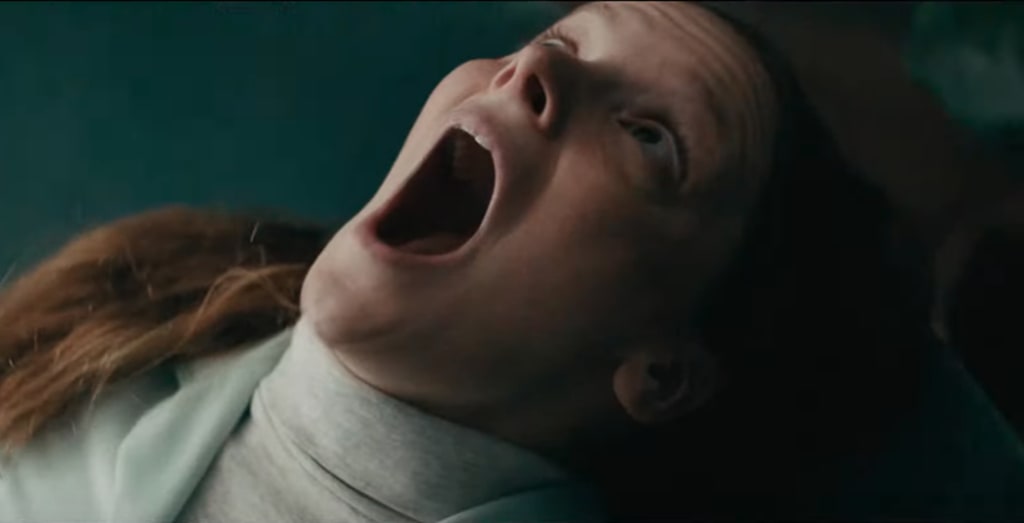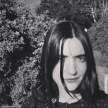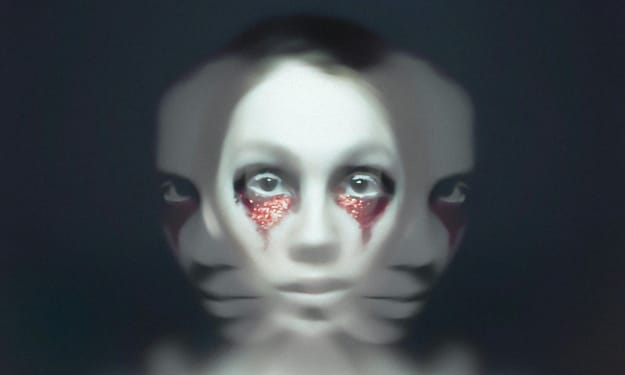Critiquing Horror Cinema

Movies for me have always been an escape— to enter a world you wholly fit into as an observer, immersed in the story, following the point of view of the camera as you enter this world at first as an outsider your relationship processing as you become another character fitting neatly into the space created. At least that’s my connection to film, to watch until you're lost in the vision that was created for you until you feel that the world is entirely real, something you’ve experienced first hand. At a young age I was introduced to horror films, perhaps a bit too underage for such stories, I fell deeply attached to the genre, watching movies like Carrie, Candyman, Friday the 13th and Rosemary’s Baby I was enthralled by these characters falling victim to their surroundings as I too felt preyed upon, elements of the things I fear being portrayed to me.
At first I was terrified by what I saw but I couldn’t look away, I was so impressed by the power of film, to challenge what the audience fears most often turning these ideas on their head and creating new ideas to fear entirely. As a coping mechanism to being scared I tried studying how the movies were made. My dad a photographer with a brief stint into special effects in movies, Army of Darkness, always taught me to study lighting, camera angles, how the camera moves and to question how special effects where achieved— was it make-up or technology. It became a fun game and allowed me to more fully enjoy what I was watching.
So I did just that, I picked the films apart as I was watching them discovering that film was so much more than just the actors but that the whole production is designed to further storylines, to create atmospheres that both set the stage for the story and enhanced them. I think back to Rosemary’s Baby where the camera played a huge part in the chilling atmosphere— it was exactly what you didn’t see that caused more tension, heightened the anxiety of the viewers just as Rosemary herself was experiencing unending paranoia. Once I began to see the power and importance of every element of film I was transfixed.
In 2001 my idea of horror cinema broadened as The Others came out mixing both horror and thriller genres together, inviting more of the power of a plot twist at the end to challenge your perception of what you just watched. The twist, which I won’t spoil, left me feeling that I needed to watch the movie again and again and again. To watch for clues that might have perhaps lead me on the right track of discovering the truth. I also was fascinated by how the story was able to lead you in another direction and I wanted to watch again to figure out how the twist was achieved so masterfully. Story lines then became a puzzle to figure out and I began to measure how well the films did in all aspects, almost as a critic were to critique and review them.
When I went to college my major Critical and Visual Studies included film theory, which I fell in love with and began to focus on. I finally was learning a language to put what I saw and understood in film and broadening my understanding of the art itself. I learned how the camera is a tool for enhancing or detracting from the characters, how the angles and point of views can either support their story or create a purposeful negative relationship with how the audience perceives them. How stories and how characters are portrayed can engage in tropes and stereotypes, creating a formula for horror movies that became a trend in how they were written. A classic representation of this is the idea of the virgin girl or woman as the final character left, typically seen in slasher films. How in these films it is typical for marginalized people to be killed off first depending on race or sexual identity which contributes to broader social injustices as media representation directly influences and portrays our cultural values and the unjust hierarchical systems of white supremacy through visual representation. Moving forward in time, these tropes in horror cinema were challenged in Jordan Peele’s films Get Out and Us where black characters are centered, given full autonomy in stories and representation in horror which was revolutionary for the genre.
All of this is to say that my dream would be to monetize my passion for horror film by critiquing and reviewing them. To give my love for horror a voice by writing about the films I see helping to inform others about what was watched. To give them an idea of what their in for and help them to understand the theory behind film and horror in general. I find that there is such a lack of substance in horror movies these days. That often the reliance of gore to scare people is frequent and cheap, often leading to a lack of plot driven nuanced stories and characters and a need for spooks and scares that are more psychologically driven. I’ve been happily surprised by new horror films coming out that do just that, that are providing more interesting and thoughtful approaches to horror, enhancing the perception of the art of this genre. I’d like to be apart of this movement.
Horror is an amazing study into the human psyche, taking a look at the human experience, what drives us, what we fear most. How our fears shape our reality and understanding of ourselves. It is so much more than scaring audiences but instead challenges our perceptions of ourselves. The audience questions how well they relate to characters and expand their imagination by wondering how they would react if placed in the reality of the characters themselves. Midsommar, for example, looks deeply into grief and trauma and how the importance of community and support is integral to the human experience. Community and having a supportive outlet for her trauma is what drives Dani and shapes her actions in the end.
While my ultimate dream is to write horror films myself and contribute to the lexicon of the genre, I’d first like to start reviewing them in an effort to get people to think more deeply about horror and give credence to the mastery of this genre that is often so overlooked. To give myself a voice for my passion would mean everything to me. It would mean that I am able to explore and profit over something that I love, which is often not the case for my jobs I’ve held in the past. To pursue my love of horror would lend me the opportunity to begin my path into making films myself, a stepping stone for making a name for myself in the industry, which is increasingly harder to do. I hope that I can one day achieve my dreams and monetize my passion, I know I’ll get there one day, I just hope it’s soon.
About the Creator
Alice Monstera
(she/her)
I’m a practicing artist exploring my love for creative writing. I love short stories, fiction, poetry and all things horror/psychological particularly admiring the author Shirley Jackson’s work.






Comments
There are no comments for this story
Be the first to respond and start the conversation.